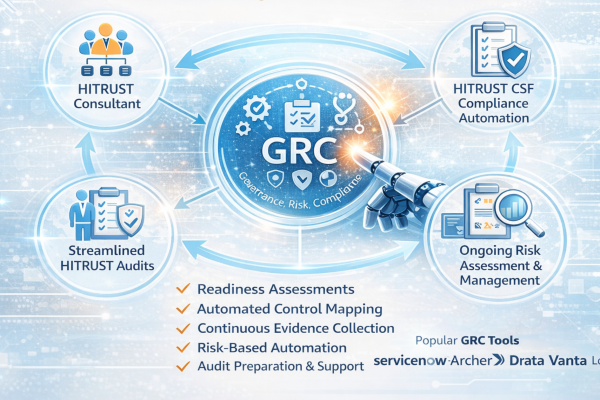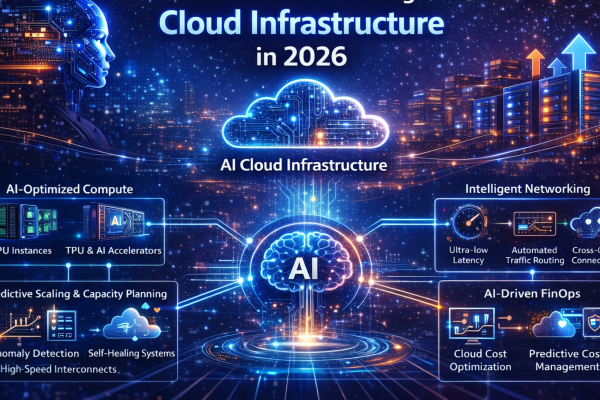AI-Powered Cloud Solutions: The Next Big Thing in Automation
Artificial Intelligence (AI) is transforming industries at a breakneck pace. From healthcare diagnostics and financial risk modeling to autonomous vehicles and customer service chatbots, AI applications are revolutionizing how businesses operate. However, this transformation comes with complex new security risks and compliance challenges that traditional information security frameworks struggle to address fully.
The globally recognized ISO 27001 standard remains the gold standard for information security management systems (ISMS). It provides organizations with a systematic approach to managing sensitive data and mitigating risks. But implementing ISO 27001 in AI-driven environments requires more than generic compliance checklists. It demands deep expertise in AI workflows, data governance, emerging threats, and regulatory landscapes.
This is where ISO Certification Consulting firms play a crucial role. They bring specialized knowledge, tools, and experience that help organizations efficiently navigate the complexities of ISO 27001 certification tailored for the AI era.
In this comprehensive blog, we’ll explore:
- The unique security challenges AI introduces that impact ISO 27001 implementation
- Why traditional ISO 27001 approaches often fall short for AI-driven businesses
- How ISO Certification Consulting bridges the gap between AI innovation and robust security compliance
- An in-depth case study demonstrating the transformative impact of expert consulting on a healthcare AI startup
- Key factors to consider when selecting an ISO Certification Consulting partner
- Why delaying ISO 27001 certification can put your AI business at risk
Let’s dive in.
The AI Era: A Double-Edged Sword for Security and Compliance
AI systems rely on complex data pipelines, dynamic model training, and continuous learning. While these capabilities enable unparalleled innovation, they also introduce multi-dimensional security and compliance risks:
Complex, Dynamic Data Flows
AI solutions ingest, process, and store massive volumes of data from disparate sources including cloud platforms, APIs, third-party vendors, and user devices. Mapping these flows is critical to risk assessment but highly challenging in fast-moving environments.
The “Black Box” Problem
Many AI models, especially deep learning neural networks, operate with limited transparency. This lack of explainability makes it difficult to pinpoint security weaknesses or audit decisions—both vital for ISO 27001 compliance.
Novel Attack Vectors
AI systems face threats unique to their technology such as adversarial attacks (input manipulation to mislead AI), data poisoning (corrupting training data), and model inversion (extracting sensitive data from AI outputs).
Third-Party and Supply Chain Risks
AI development often depends on pre-trained models, open-source frameworks, and cloud-based AI services. These external dependencies add layers of supplier risk and require stringent third-party risk management.
Regulatory and Ethical Considerations
AI regulation is rapidly evolving worldwide, focusing on privacy, fairness, bias mitigation, and accountability. Many of these intersect with ISO 27001’s controls around confidentiality, integrity, and availability of data.
Why Traditional ISO 27001 Implementation Falls Short for AI-Driven Businesses
Many organizations attempt to implement ISO 27001 by following generic standards and templates that do not consider AI’s specific challenges. This approach leads to several pitfalls:
- Incomplete Risk Identification: Standard risk assessments may overlook AI-specific threats like adversarial inputs or algorithmic biases.
- Ineffective Controls: Generic security controls may not adequately protect dynamic AI training environments or model update processes.
- Policy Gaps: Policies may lack AI data lifecycle governance, leading to inadequate handling of sensitive training data or model access permissions.
- Audit Unpreparedness: Internal teams unfamiliar with AI nuances struggle to demonstrate compliance during certification audits.
- Slower Certification Timelines: Inefficient processes and missed requirements prolong the certification journey, increasing costs and delaying business benefits.
In today’s competitive AI landscape, these gaps can mean lost deals, regulatory penalties, or worse—security breaches.
How ISO Certification Consulting Accelerates ISO 27001 Success in the AI Era
ISO Certification Consulting firms specializing in AI security act as trusted partners who understand the intersection of AI innovation and compliance requirements. Their value proposition includes:
1. AI-Centric Risk Assessments
Consultants use frameworks tailored to AI environments to uncover hidden risks such as model tampering, training data leakage, and supplier vulnerabilities. This depth ensures no blind spots.
2. Customized Policy Frameworks
They help craft or update ISMS policies that explicitly address AI data classification, ethical AI guidelines, third-party management, and incident response specific to AI assets.
3. Tailored Control Mapping and Implementation
Consultants align technical controls (like encryption of datasets, access controls for model updates, and secure development practices) and administrative controls (AI governance committees, change management) with ISO 27001 standards.
4. AI Team Training and Awareness
Security culture extends beyond IT to data scientists, AI engineers, and DevOps teams. Consultants provide targeted training on ISO principles, threat scenarios, and audit readiness tailored for AI professionals.
5. Internal Audits and Certification Support
They conduct rigorous internal audits simulating certification, identify compliance gaps, and provide hands-on support during external audits, minimizing disruptions and increasing success rates.
6. Ongoing Improvement and Compliance Maintenance
Post-certification, consultants assist with continuous monitoring, risk reassessment, and adapting the ISMS to evolving AI technology and regulations.
Why You Can’t Afford to Delay ISO Certification Consulting
In the AI era, postponing your ISO 27001 certification journey can be costly in many ways:
- Increased Vulnerability to Attacks: AI-specific threats continue to evolve; lacking a robust ISMS means higher risk of data breaches and intellectual property theft.
- Regulatory Risks: Emerging AI regulations globally impose stringent security and transparency requirements—non-compliance can lead to fines and legal exposure.
- Lost Market Opportunities: Enterprise clients and partners increasingly demand ISO 27001 certification as a prerequisite, blocking market access for uncertified AI vendors.
- Resource Drain: Without expert consulting, your internal teams may struggle with inefficient processes, leading to wasted time and morale loss.
- Reputational Damage: Security incidents in AI can cause lasting harm to brand trust and customer confidence.
Choosing the Right ISO Certification Consulting Partner for Your AI Business
To maximize ROI from consulting, consider these critical factors when selecting a partner:
- Deep AI and Security Expertise: Ensure the consultants understand AI workflows, risks, and compliance requirements.
- Proven Track Record: Request case studies or references from AI or highly regulated industry clients.
- Comprehensive Service Scope: From risk assessments and policy development to training and audit support, the consultant should cover all certification phases.
- Collaborative, Knowledge-Transfer Focus: Consultants should empower your teams with skills and tools, not just deliver reports.
- Flexibility and Future-Proofing: The partner should support continuous ISMS improvement as your AI capabilities and regulatory environment evolve.
Conclusion: Partner with ISO Certification Consulting to Secure Your AI Future
ISO 27001 certification is not just a compliance formality—it’s a strategic imperative for AI-driven businesses seeking to manage risks, build trust, and accelerate growth. The AI era introduces unique complexities that require specialized expertise beyond traditional ISO implementation approaches.
Engaging expert ISO Certification Consulting is the fastest, most efficient way to navigate the certification journey, mitigate AI-specific risks, and unlock competitive advantages.
Don’t let security and compliance hold back your AI innovation. Start your ISO 27001 certification journey with the right consulting partner today and position your organization as a trusted leader in the AI-powered digital economy.
Author







